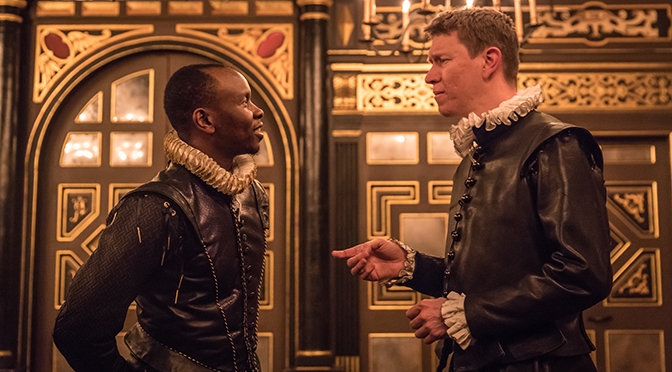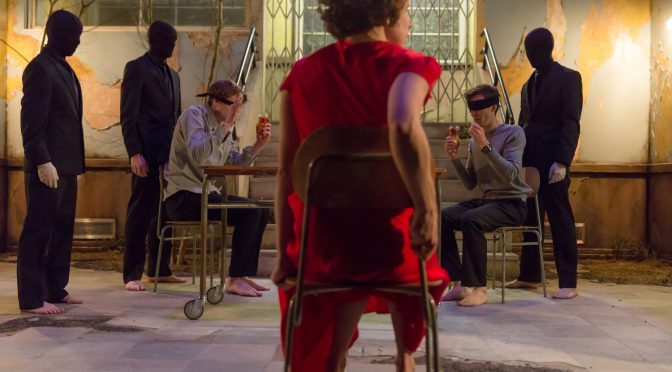This is an uncharacteristically poor production from one of London’s most gorgeous and surefooted theatres. Shakespeare’s tragedy of the Moor of Venice should be pretty foolproof – hard to mess up even if you muck about with it. But director Ellen McDougall overburdens the text with trendy touches while wilfully ignoring the poetry of the play.
From the moment the cast walk onstage to don their minimalist costumes (good work by designer Fly Davis) it’s clear McDougall wants to do something new. We have pop songs a cappella, ‘selfies’ and re-writing Cassio as a woman. All this could be exciting, and there’s clearly no shortage of ideas, but the ramifications of each addition are underdeveloped. McDougall surely has her reasons, but it is too hard to see what they are.
Which brings us to rhyme. Working with dramaturg Joel Horwood, there are stumbles due to the change of Cassio’s gender. Adding the odd joke or altering Shakespeare’s insults can be justified but add little here. Maybe tackling the text should have been bolder – presenting something new, in the spirit of last year’s Cymbeline, transformed into Imogen, outdoors at the Globe? McDougall’s cast adopt a bland approach to the verse. Presumably an attempt to make it sound natural – it actually makes it dull.
Natalie Klamar’s Desdemona suffers most from this prosaic delivery – she whines. Joanna Horton’s Cassio, a transformation that should offer such exciting potential, is humdrum. Peter Hobday’s Roderigo fails to deliver comic appeal, and he is even worse when performing as Duke Lodovico, entirely lacking charisma. Sam Spruell’s Iago comes close to making his role work – a gruff delivery denies Iago the intelligence to make him truly frightening but at least he holds the stage. The notable exceptions are Thalissa Teixeira, who develops her Emilia nicely, and the lead – Kurt Egyiawan – who thankfully, sounds wonderful. At a best guest, it’s a clumsy attempt to set up a contrast between Othello and everyone else. But it leaves far too much for Egyiawan to do and the majority of the production is just tedious.
Until 22 April 2017
Photo by Marc Brenner


